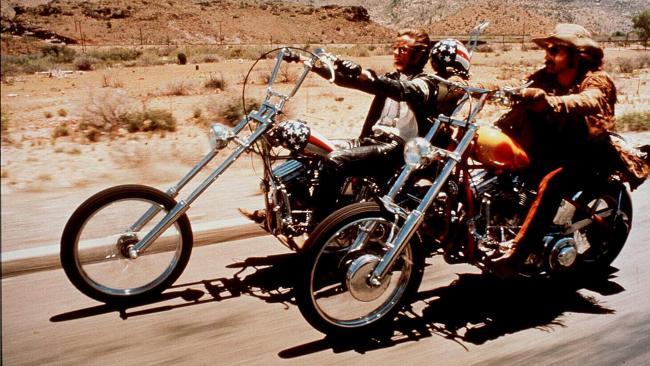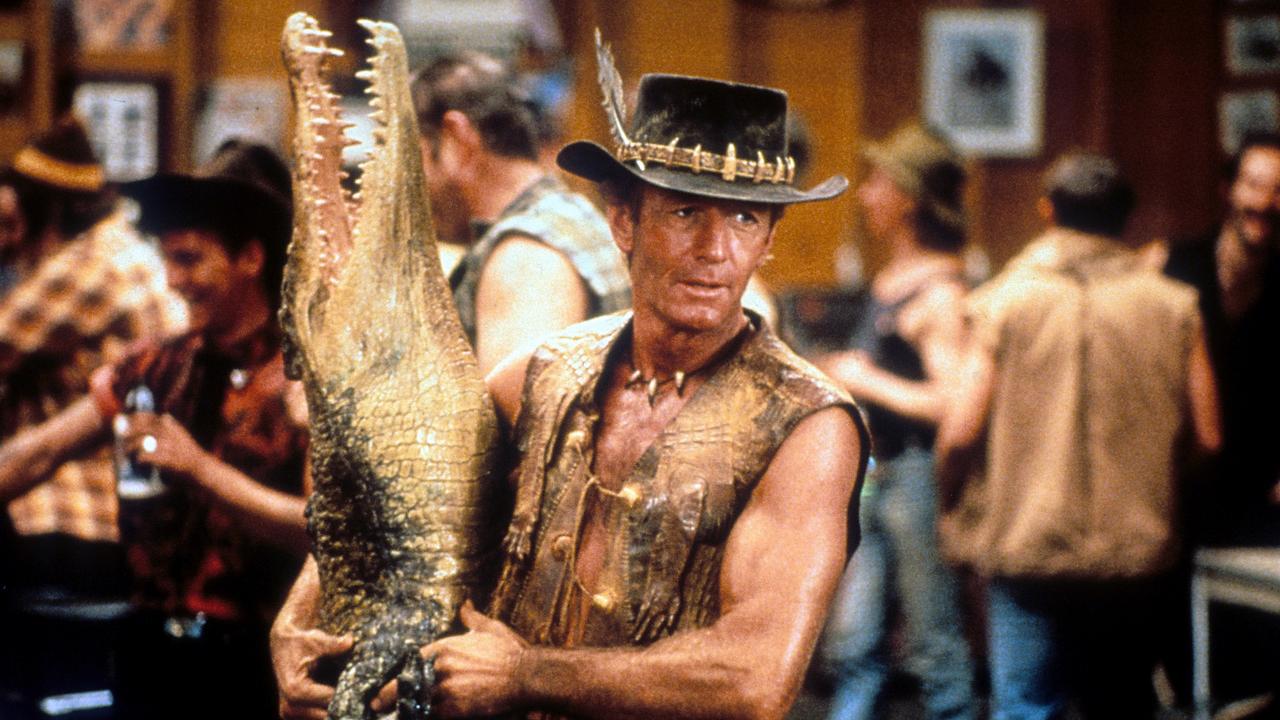Dennis Hopper: a Hollywood rebel who was born to be wild
DENNIS Hopper first came to notice while still a teenager for his performance in the 1950s teen movie classic Rebel without a Cause.

A SCREEN actor who first came to notice while still a teenager for his performance alongside James Dean, Natalie Wood and Sal Mineo in the 1950s teen movie classic Rebel without a Cause (1955), Dennis Hopper was triumphantly to capture the spirit of the youth revolution of the following decade in the film that became iconic of the spirit of 60s counter-culture, Easy Rider (1969).
As scriptwriter (with Peter Fonda and Terry Southern) actor (with Peter Fonda) and director, of Easy Rider, Hopper was the controlling genius of a film that could so easily have degenerated into chaos as it pursued him and Fonda as a couple of drop-outs on Harley-Davidson motorcycles on a ragged odyssey across America (on the way giving Jack Nicholson his first big screen break).
Hopper did more than any other filmmaker to encapsulate the often woolly-headed aspirations of the alternative culture without however over-sentimentalising it. And Easy Rider graphically depicted aspects of the sheer nastiness in American society - ranging from intolerance of long hair to murderous homophobia - to which the hippy culture was opposed.
Against expectation, Easy Rider exerted a fascination well outside what might have been considered as its target audience, becoming a runaway box-office phenomenon not only in the US but throughout the world.
It had been made on a modest budget of $350,000, but was to go on to gross more than $50 million worldwide. Queues for it included those of an age for which it represented a completely alien way of looking at society and for whom its subject was no more nor less than the subversion of right-thinking civilisation.
Given Hollywood's proven tendency to exploit a successful formula, it was not surprising that Easy Rider had many imitations. But none could touch the sheer (and what appeared unforced) authenticity of the original. The moment so effectively captured by Hopper had passed.
For Hopper, the moment of triumph, which effectively gave him carte blanche to make whatever films he liked, was also a creative disaster. Easy Rider was a hard act to follow. It was succeeded by the self-indulgent The Last Movie (1971), which featured plenty of artistic flourishes, but lacked the unifying sense of purpose and truth to reality that had characterised Easy Rider. It was hailed at the Venice Film Festival, but at the box office The Last Movie was a disaster. Having made his name as a director it was now as an actor that Hopper continued to be in
demand with his combative, neurotic style.
His problems were compounded by the drinking and drug taking that now took over his life. This, and a succession of failed marriages, often claimed more attention in the media than his work in the cinema. Interviewed in his 60s he ruefully admitted:
"Creatively I should have contributed a lot more. I was a very talented person and I did not fulfil that talent."
Dennis Hopper was born in Dodge City, Kansas, in 1936. His father was a post office manager who was also in the Office of Strategic Services (the precursor to the CIA). His mother worked as a lifeguard instructor after the family moved to California when he was 13. He attended high school in San Diego and started acting as a teenager in local theatres. He later appeared in repertory at the Pasadena Playhouse.
Put under contract by Warner Brothers after being spotted on television, he made his film debut in Rebel Without a Cause. He played opposite Dean again in Giant (1956) and was strongly influenced by Dean's brooding style. He always regarded Dean as the most talented and original actor he worked with. They became close friends and Dean's death in a car crash in 1955 at the age of 24 affected him deeply.
Much of his subsequent work was in westerns, from Gunfight at the OK Corral (1957) to The Sons of Katie Elder (1965), Cool Hand Luke (1967) Hang 'em High (1968) and True Grit (1969). But after a falling-out with the director Henry Hathaway he was branded as a difficult actor and for a time he was blacklisted. He used the enforced sabbatical to move to New York and study at the Actors Studio.
Easy Rider was not his first excursion into the alternative culture. That had come a couple of years earlier with Roger Corman's opt-out movie The Trip (1967) and though widely banned because of its drugs theme, it was a significant departure from the Hollywood mainstream, and it teamed Hopper for the first time with Peter Fonda.
After the enormous commercial success of Easy Rider Hopper was free to choose his subjects. He opted for The Last Movie, a largely autobiographical project shot in Peru. Fonda was again his co-star. But the film was too muddled and pretentious to please the critics or find an audience.
It was nearly a decade before Hopper directed again and his acting also went into a decline. For much of the 1970s he turned his back on Hollywood, retreating to New Mexico where drink and drugs took over. For five years, he claimed, his daily intake was 20 to 30 beers, more than two litres of rum and 3g of cocaine. In 2001 he reflected: "I should have been dead 10 times over. It's a miracle that I'm still around."
He lived for a time in Paris and London and his acting was mainly in obscure European films. The exception was The American Friend (1977) directed by Wim Wenders, in which he played Patricia Highsmith's psychotic hero, Tom Ripley. He did not return to Hollywood until Francis Ford Coppola cast him as the unhinged photojournalist in the Vietnam film, Apocalypse Now (1979). Hopper largely improvised his lines.
He finally returned to directing with Out of the Blue (1980), a Canadian film about a dysfunctional family in which he played the abusive father. The decade of the 1980s, by which time he had made a huge effort to give up drinking, were fruitful on the acting front. He had a strong supporting part in Coppola's Rumble Fish (1983) and played the deranged drug dealer in River's Edge (1986). But his most memorable role, and one of the finest of his career, was the psychopath Frank Booth in David Lynch's unnerving portrayal of middle America, Blue Velvet (1986), while his alcoholic baseball player in Hoosiers (1986) brought him an Oscar nomination.
He also won praise for his direction of Colors (1988), a quasi-documentary treatment of street gangs in Los Angeles with Sean Penn and Robert Duvall as the cops. He was less fortunate with the thriller Catchfire (1989). After its release was held up for two years because of disputes with the producers Hopper insisted on taking his name off the directing credits.
His most notable acting roles during the 1990s came in Paris Trout (1991), as a racist storekeeper, True Romance (1993), a scene-stealing cameo as a security guard in a violent chase thriller from a Quentin Tarantino script, and Speed, as a mad bomber trying to hold a city to ransom. He played another psychotic in the epic Waterworld (1995), almost stealing the picture from its star, Kevin Costner, while Carried Away (1996) saw a quieter Hopper as a middle-aged schoolteacher seduced by a girl pupil.
Hopper continued to work busily in the cinema well into the 21st century, often appearing in several films a year. In 2003, he played Frank Sinatra alongside Joel Edgerton and Rose Byrne in The Night We Called It A Day, based on the singer's controversial 1974 tour of Australia.
He returned, with some success, to television, playing the villain Victor Drazen, in the first season of 24, and a drug-addicted record producer in Crash, a series based on the Oscar-winning film. He also, intriguingly, came close to being cast in Doctor Who but other commitments got in the way.
Away from films Hopper was a talented photographer who had several shows devoted to his work, as well as a painter and sculptor. An exhibition of Hopper's work finished last month at Melbourne's Australian Centre for the Moving Image. He had planned to return to Australia to open the exhibition but cancelled the trip after he was diagnosed with prostate cancer. "I wish I was in Australia but I have to be here," he told The Australian at the time.
Given his longtime rebellion against the established order, he emerged as a surprising supporter of the Republican Party, who had backed Ronald Reagan and cast his vote for both George Bushes but in 2008 he switched to Barack Obama.
Hopper married his fifth wife, Victoria Duffy, in 1996, but they separated in 2010. His previous wives were Brooke Hayward, daughter of the actress Margaret Sullavan; Michelle Phillips, singer with the Mamas and Papas, who left him after only eight days; Daria Halprin; and Katherine LaNasa. He had four children, three daughters and a son, from different marriages.
The Times


